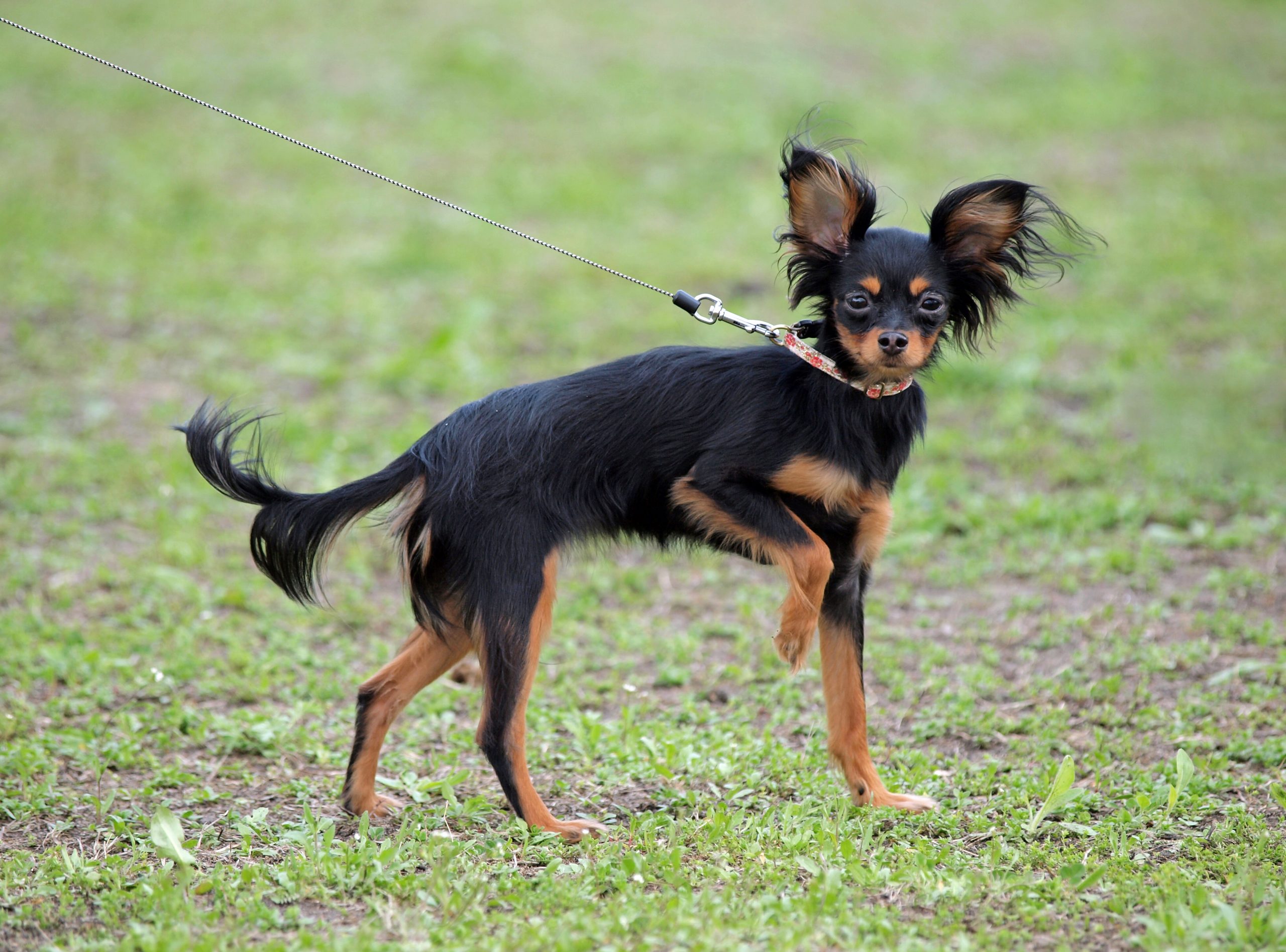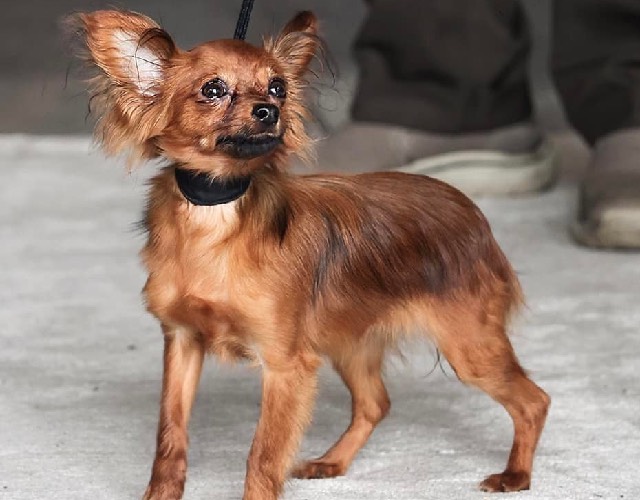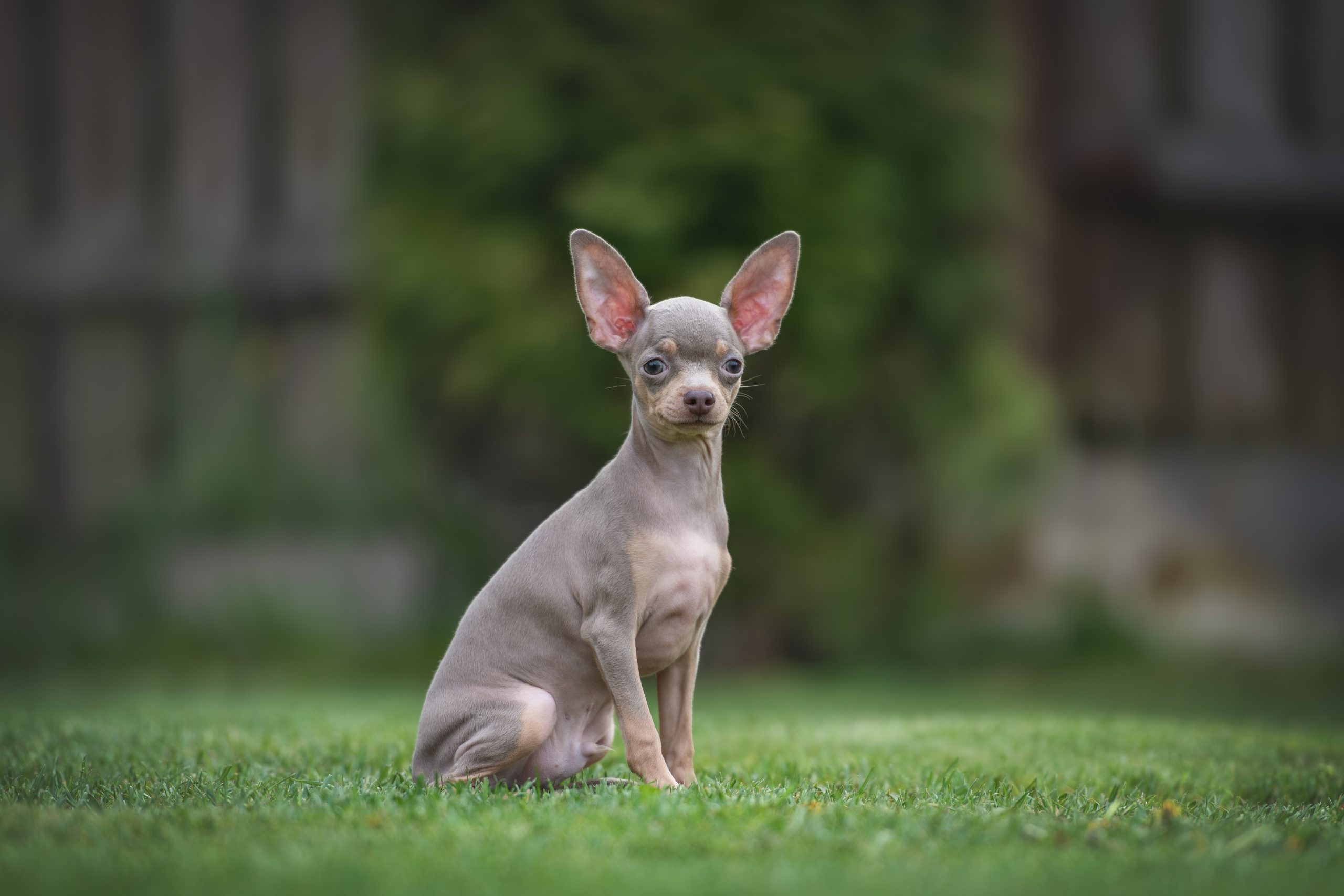Russian Toy
No products found which match your selection.
Shelter Dog Meal Donation Count:
No products found which match your selection.
This breed is known for its distinct appearance, lively character, and affectionate nature, making it a beloved companion in many households.
The Russian Toy is a small, elegant, and long-lived breed. They are adaptable to various living environments and can thrive in both apartments and houses with yards. Despite their small size, they have a robust constitution.

Originating from Russia, the breed evolved from small English terriers brought to Russia in the 18th century. Initially bred for hunting rats, they became a favorite among the Russian nobility as companion dog. The breed was nearly extinct after World War II but was revived by dedicated breeders.




Russian Toys are generally healthy but can be prone to certain conditions like patellar luxation, heart issues, and dental problems. Regular vet check-ups are essential.
Smooth-Coated Variety: Requires minimal grooming. Long-Coated Variety: Needs regular brushing to prevent tangles. Nail trimming and dental care are important for all Russian Toys.
They need moderate exercise and enjoy short walks, play sessions, and indoor activities. They are energetic but can adapt to the exercise routines of their family.
Russian Toys are intelligent and learn quickly. Positive reinforcement techniques work best. Early socialization and obedience training are recommended to ensure a well-behaved pet.
A balanced diet suitable for small breeds is important. Portion control is essential to prevent obesity, especially since they are small and less active compared to larger breeds.
The Russian Toy is an excellent companion, known for its loyalty and affectionate nature. They fit well into various lifestyles and are suitable for families, singles, and seniors alike. With proper care, training, and love, a Russian Toy can be a delightful addition to any home.
The Russian Toy, like all breeds, has certain health issues that are more commonly seen in the breed. Responsible breeding practices and regular veterinary care can help manage these conditions. Below are some of the common health issues and the recommended tests for the Russian Toy breed.
It is always recommended to consult with a veterinarian who can provide tailored advice and care based on the individual dog's health status and needs. Additionally, choosing a reputable breeder who conducts proper health testing and provides health clearances for breeding dogs can help ensure the health of puppies.
The iHeartDogs Free Rx Discount Card Program is a pet prescription discount card that can help you save money on your furry friend’s medications. The card is free to sign up for, and you can use it at participating pharmacies nationwide. To use the free program, simply show the card to your pharmacist when you pick up your pet’s prescription. The pharmacist will then scan the card, and you will receive a discount on the price of the medication.LEARN MORE
Caring for a Russian Toy, like any pet, involves various expenses. The annual cost can vary based on factors like location, the dog’s health, and the level of care provided. Below is a breakdown of typical expenses that are part of caring for a Russian Toy.
Total Estimated Annual Cost:
$2500 - $6800
It's important to note that these figures are estimates and can vary. Also, the first year of owning a dog can be more expensive due to one-time costs like spaying/neutering, initial vaccinations, and training. Regular budgeting for your dog's needs and an emergency fund for unforeseen costs are essential for responsible pet ownership.